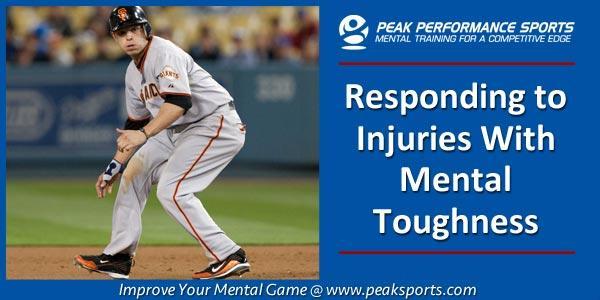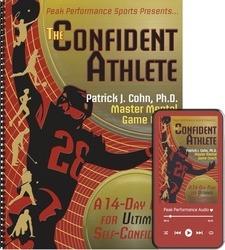
Are You Mentally Tough After An Injury?
Are you mentally tough after you’ve had “time off” from competing due to an injury?
Recall a time when an injury interrupted your season…
Sport injuries have both physical and psychological challenges. Injured athletes experience a wide range of intense emotions such as depression, anxiety, stress, shock, lack of confidence and frustration.
Your response to injury will affect your rehabilitation as well as your return to action.
Of course, you will experience some initial negative reactions to an injury… that’s normal.
The key is to approach your injury with a mentally tough mindset.
It does not help to blame others or feel sorry for yourself. Instead, you want focus on what you need to do to return to play even better than before your injury.
Mandy Ruddock-Hudson et al. investigated the how athletes cope with injury in their study, The Psychological Impact of Long-Term Injury on Australian Football League Players (Journal of Applied Sport Psychology, 2014).
Their research identified four factors that affect your response to injury: your emotional reaction to injury, the support you receive by others, how well you meet the challenges of rehabilitation, and your psychological readiness to return to play.
The researchers indicated that successful athletes who maintained their mental toughness, were motivated to return to action and renewed their “hunger” to compete.
In addition, they identified four common characteristics of mentally tough players who successfully respond to injuries.
Mentally tough players adopted a positive mindset that enabled them to regain a sense of self-control during the course of their injury. These athletes sought to develop other aspects of their game (physical strength, diet, mental game).
Mentally tough athletes maintained their relationships with teammates, coaches, training staff, friends, etc. These athletes avoided withdrawing from the team and support system.
Mentally tough athletes found alternative activities (some kind of education or a hobby) to stay busy instead of dwelling on being out of action.
Mentally tough athletes maintained a positive attitude upon their return to competition (“I’m so excited to be back”), instead of a negative outlook (“I hope I don’t get re-injured”).
The study concluded that your approach to injury significantly influences how well you cope with an injury and the rehabilitation process.
Try these tips to respond to injuries with a mentally tough mindset:
- Tip #1: Stay focused on what you can do instead of what you can’t do. Identify 1 or 2 aspects of your game that can be improved while you are in the process of rehabbing. Commit to working on these daily.
- Tip #2: You want to return to the field of play with the same level of aggressiveness and confidence you played with prior to your injury, which is often hard to do for post-injury athletes. When you return from injury and play too cautiously, you tend to perform with more tension in the injured area increasing the risk on re-injury.
Related Sports Psychology Articles
- Returning to Competition After Injury
- Control Your Emotions When Returning From an Injury
- The Mental Side of Coping With Injury
*Subscribe to The Sports Psychology Podcast on iTunes
*Subscribe to The Sports Psychology Podcast on Spotify
Download a free sports psychology report to improve your mental game!
Learn more about our one-on-one mental game coaching.
The Confident Athlete

“The Confident Athlete” consists of 2 audio programs that include 14 days of confidence fueling exercises and a simple to follow workbook that guides you through the 14 days, helps you apply the strategies, and customizes the exercises to your personal needs.
Let me help you put a stop to the confidence leak. You can learn to have greater levels of confidence in competition than you do in practice by identifying the specific ways you undermine your own confidence and how to convert your practice confidence into COMPETITIVE CONFIDENCE.
“The Confident Athlete” is a ground-breaking system to teach you how to think like a champion and have ultimate self-confidence every time you step on the playing field, court, track, or course. The confident athletes was developed for any athlete – junior to professional –that wants to gain confidence. However, coaches and sports parents can learn how to teach others to perform with ultimate confidence. Use my program if you want to bust a slump or just wanting higher or more consistent levels of self-confidence.
